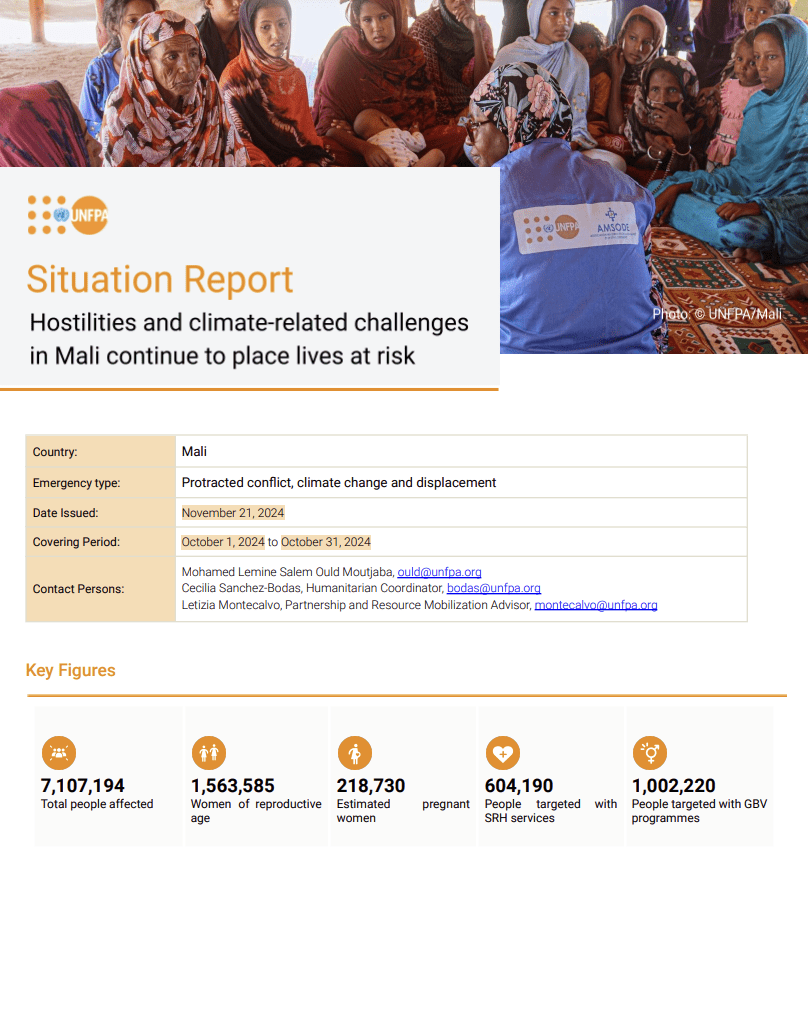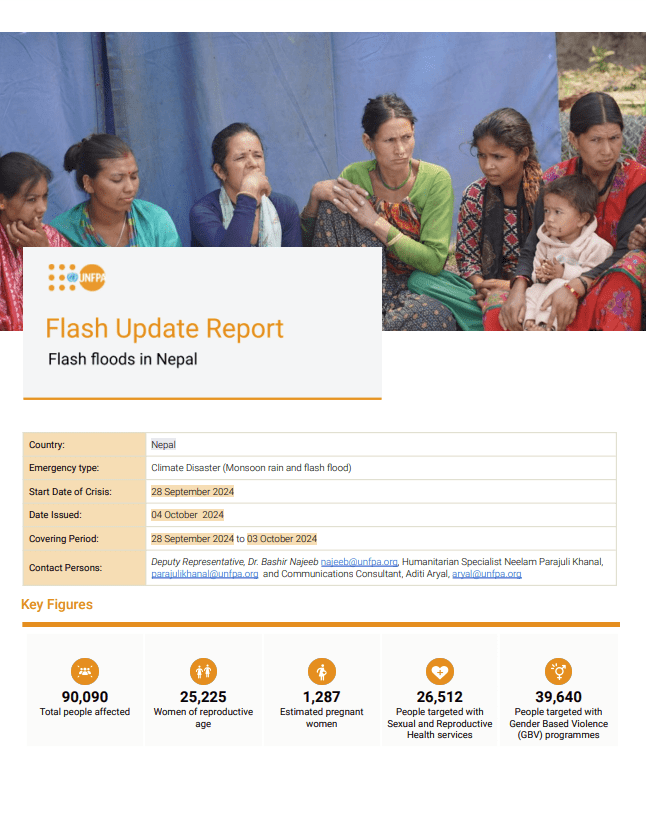
Mali continues to face a dual crisis of protracted conflict and unprecedented flooding caused by torrential rains and rising waters of the Niger River, which have displaced 73,778 people and affected over 259,000 individuals, the majority of whom are women and children. Flooding has caused widespread damage to homes, schools, and health facilities, while conflict and insecurity, particularly in the northern and central regions, have intensified vulnerabilities and disrupted access to essential services. Health risks are compounded by overcrowded shelters, contaminated water supplies, and the growing prevalence of waterborne and mosquito-borne diseases.
UNFPA has scaled up its response, delivering integrated sexual and reproductive health (SRH), gender-based violence (GBV), and family planning (FP) services to affected populations. In October, 998 GBV survivors accessed care at five One Stop Centers, and six safe spaces supported 1,367 women and girls with psychosocial and socio-economic services. UNFPA also deployed 15 mobile teams and provided Inter-Agency Reproductive Health Kits to 86 health facilities, ensuring clean and safe deliveries and emergency obstetric care for an estimated 12,726 individuals. These efforts reached over 14,000 individuals with essential SRH and GBV services, addressing critical gaps caused by damaged infrastructure.
Despite these efforts, a significant funding gap remains. Of the US$ 15 million required for 2024, only US$ 8.4 million has been mobilized, leaving 44 per cent unmet. UNFPA continues to advocate for increased funding to sustain its interventions, particularly for women and girls who remain disproportionately affected by the intersecting crises of conflict and natural disasters.



